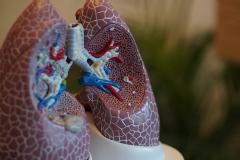Course for MBBS student, PG aspirants, and physicians ready to update their concepts on in depth endocrinological systems.
Module 1: Introduction to Hormone and Receptor Physiology (2 hours)
- Definition and importance of hormones
- Overview of endocrine glands and systems
- Classification of hormones
- Significance of receptor molecules
Module 2: Hormone Synthesis and Release (2 hours)
- Mechanisms of hormone synthesis
- Regulation of hormone release
- Feedback loops in hormonal control
- Hormone transport in the bloodstream
Module 3: Hormone-Receptor Interactions (3 hours)
- Types of hormone receptors (e.g., membrane-bound, intracellular)
- Signal transduction pathways
- Specificity and affinity of hormone-receptor binding
- Cellular responses to hormone binding
Module 4: Endocrine Systems (3 hours)
- Study of major endocrine systems (e.g., hypothalamus-pituitary, thyroid, adrenal, pancreas)
- Role of hormones in maintaining homeostasis
- Hormonal regulation of growth and development
Module 5: Regulation of Hormone Secretion (2 hours)
- Factors influencing hormone secretion (e.g., neural, hormonal, environmental)
- Diurnal and circadian rhythms in hormone release
- Role of negative and positive feedback mechanisms
Module 6: Hormonal Disorders and Diseases (3 hours)
- Common endocrine disorders (e.g., diabetes, thyroid disorders)
- Etiology, symptoms, and treatment options
- Impact of hormonal imbalances on overall health
Module 7: Hormones and Reproduction (2 hours)
- Hormonal control of the reproductive system
- Role of hormones in fertility and pregnancy
- Contraceptive methods based on hormone physiology
Module 8: Hormones and Stress Response (2 hours)
- The stress response and the role of cortisol
- Interactions between hormones and the immune system
- Hormonal adaptations to chronic stress
Module 9: Hormones and Aging (1 hour)
- Changes in hormone levels with aging
- Implications for age-related health issues
- Hormone replacement therapy
Module 10: Ethical and Social Aspects (2 hours)
- Ethical considerations in hormone therapy
- Social and cultural perspectives on hormone-related issues
- Emerging technologies and the future of hormone regulation
Module 11: Recent Advances in Hormone Research (1 hour)
- Cutting-edge research in hormone and receptor physiology
- Promising developments in hormone-related therapies
- Future directions in the field
Module 12: Course Review and Discussion (1 hour)
- Recap of key concepts and topics
- Open discussion and Q&A session
- Assessment and feedback
By the end of this course, students will have a deep understanding of the physiological processes underlying hormone secretion, receptor interactions, and their impact on health and disease. They will also gain insights into current research trends and ethical considerations in hormone-related fields. This 20-hour course is suitable for students, healthcare professionals, researchers, and anyone interested in the fascinating world of hormones and receptors.








